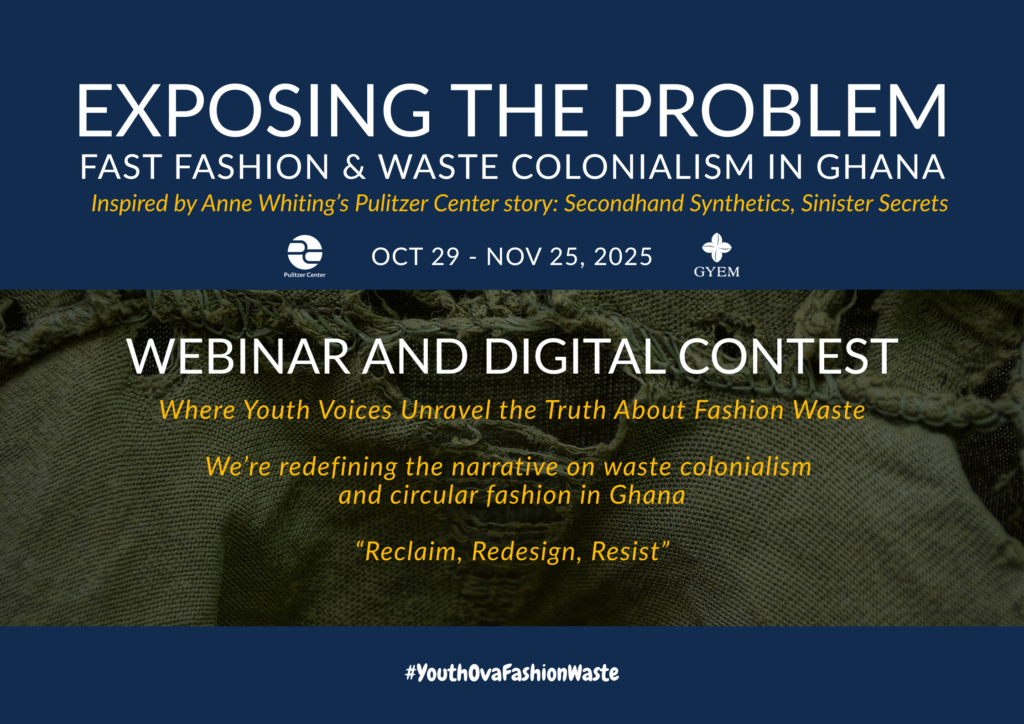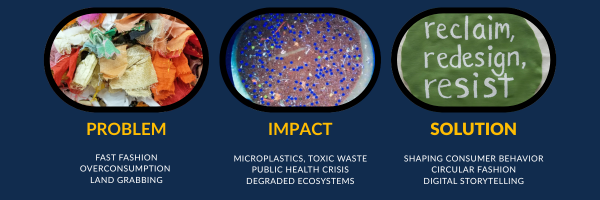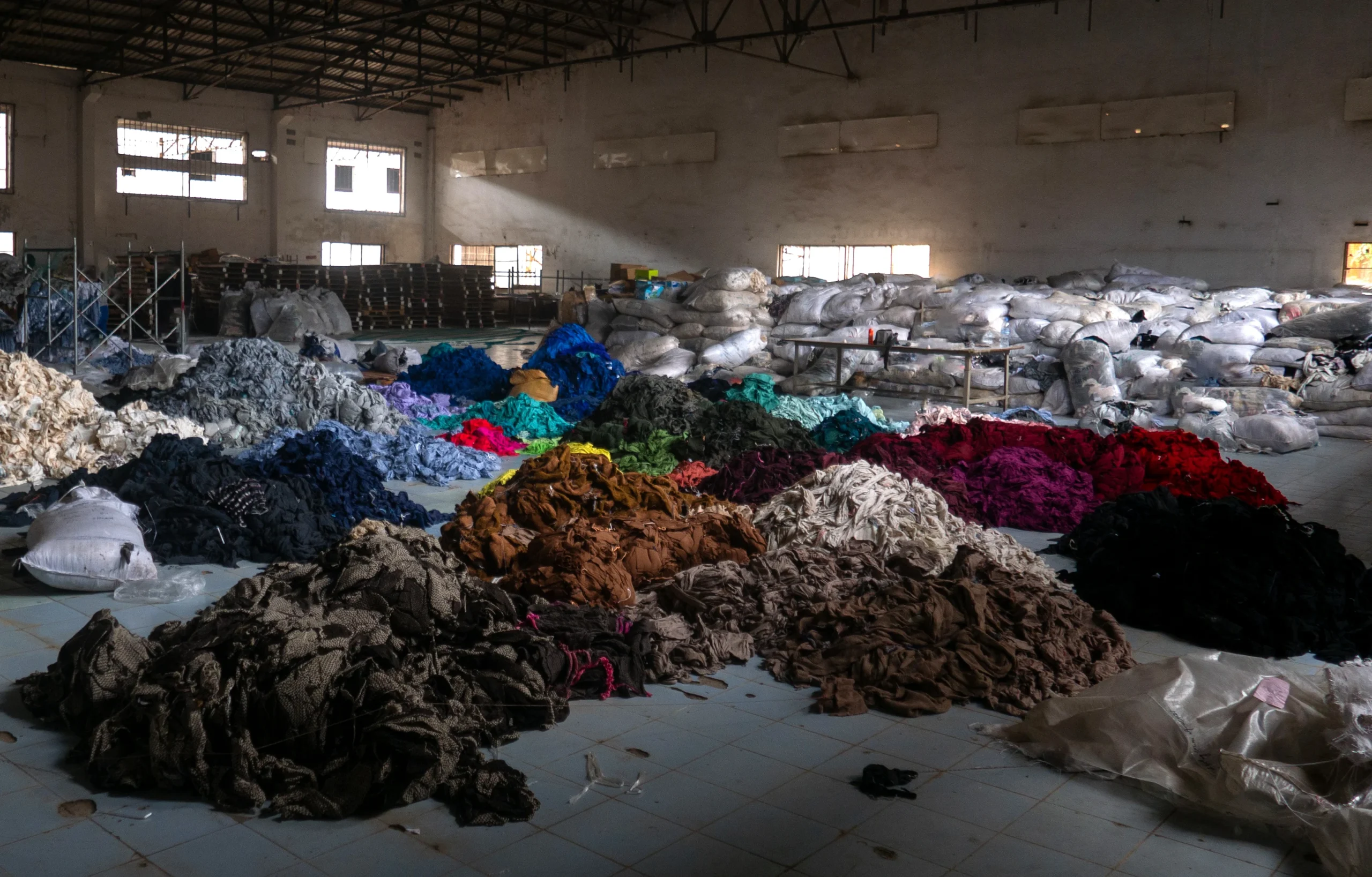Ghana receives about 15 million used clothing from the Western world each week, 40% of which are thrown away due to their low quality, making them unwearable (DW News, 2022). Most of these garments are dumped at landfills, which end up polluting the ocean and littering beaches. The burning of secondhand clothing also releases toxic substances into the air, which can cause respiratory infections and diseases. It is believed that the global fashion industry is a major contributor to climate change; responsible for 1.2 billion tons of CO2 equivalent per year, representing emissions more than the shipping and aviation industries put together (Climate Council, 2021).
In response to the growing threats posed by unsustainable fashion practices on the environment in Ghana and its contribution to global climate change, we have created the Sustainable Fashion Advocacy Unit. The department will work with different stakeholders to raise awareness among the fashion industry players and the public about the impact of the second-hand business models on the environment. GYEM will do this through research and engagement with state actors and industry, advocating for the implementation of relevant policies to control the consumption of fast fashion and protect the environment. We will also partner with community-based organizations (CBOs) to address this issue by working with community leaders and members.
We have already collaborated with Quinsera for Kumasi Fashion Week, an annual fashion event in the Ashanti Region of Ghana, to introduce the “Sustainability Task” in the 2022 edition with support from Akosombo Textiles Limited. The event saw designers combining second-hand pieces with wax prints to make wearable pieces which were later donated to vulnerable members of the local community.

Read our latest blog on sustainable fashion: WASTE COLONIALISM: How Ghana Pays the Price for Western Fast Fashion

YouthOvaFashionWaste is a creative campaign and digital learning project led by the Ghana Youth Environmental Movement (GYEM), inspired by Pulitzer Center–supported reporting by Anne Whiting on fashion waste and waste colonialism: Secondhand Synthetics, Sinister Secret
Through three dynamic webinars, and a youth digital storytelling contest, we are bringing together youths, sustainable fashion innovators, creatives, scientists & researchers, policymakers, and journalists across Ghana to rethink how our fashion habits and global trade systems affect people, the planet, and our shared future.
This initiative invites you to learn, share, create, and act toward a circular fashion economy: one that respects culture, community, and the environment.
Main Objectives
The YouthOvaFashionWaste Webinar & Digital Contest aims to:
- Amplify Pulitzer-supported journalism on fashion waste and waste colonialism.
- Provide a platform for young people to engage experts, policymakers, and grassroots leaders in discussions on sustainable fashion, waste governance, and community resilience.
- Inspire youth-led creative campaigns and advocacy initiatives that raise awareness.
- Strengthen linkages between youth movements, government, civil society, and industry actors working toward sustainable fashion systems in Ghana.
Why It Matters

Every year, millions of tons of discarded clothing end up in Africa’s largest secondhand clothing market, Kantamanto. Much of it is unsellable and left to either rot in landfills, wash up on beaches, or, in the end, turn into microplastics, causing ecological hazards. In Accra, piles of textile waste choke waterways, destroy ecosystems, and threaten livelihoods.
But the story does not end there. Youth across the continent are rewriting this narrative, transforming textile waste into opportunity, from upcycling innovation to grassroots advocacy.

YouthOvaFashionWaste aims to support the voices of more change-makers with tools and visibility to push for a just and sustainable fashion future.
Set your reminder for the first session of #YouthOvaFashionWaste Webinar & Digital Contest Campaign 🗓️ Oct. 29 – 5 PM GMT
Live on X Space ✅https://t.co/7FqJfLdiL1
This initiative is supported by the Pulitzer Center and organized by the Ghana Youth Environmental Movement (GYEM).
Stay connected and inspired.
Follow the conversation with #YouthOvaFashionWaste #ReclaimRedesignResist #CircularAfricaGYEM

